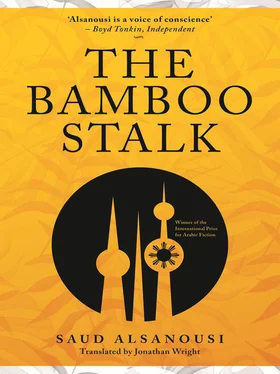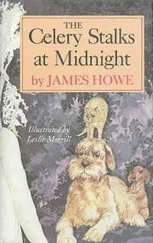‘But I can’t speak Chinese,’ I said.
He laughed so much that his eyes closed. He pointed at my hands. ‘But your fingertips do,’ he said.
Cheng was talking about the Chinese physiotherapy and massage centre. To be a physiotherapist, you needed a professional diploma. ‘But to be a masseur, all you need is magic fingers like yours,’ said Cheng.
* * *
At the Chinese centre they gave me a test. ‘Not bad,’ the man in charge said, ‘but it’s not enough.’
He got up off the couch and walked towards a wooden screen around a shower stall. He disappeared behind the screen to wash the oil off his body. He had to raise his voice to be heard above the sound of the shower water. ‘You’ll need some practical training in Chinese massage, traditional massage, Thai massage, dry massage and massage with hot stones,’ he said.
I signed a contract with the Chinese centre as soon as I passed the training course. It said I would work for a fixed monthly salary plus commission for the services I provided. The most important part wasn’t mentioned in the contract — the tips the customers pressed into my hand if the service met with their approval. This gave me an income several times the amount I earned by selling bananas in Chinatown.
I proved myself in the job despite the difficulties I faced at the beginning. Being a man in itself reduced my chances of finding clients, because in this line of work, as in others, women had better luck. But as time passed this was no longer a problem: I had serious clients who visited the centre after a hard day’s work or after strenuous physical exercise to enjoy an hour of real massage, without any of the services that some masseuses provided in the closed rooms at the centre.
4
After a month selling bananas in Chinatown and a month working at the Chinese centre, I decided to visit our house in Valenzuela City. I was homesick for the place and I had two envelopes of money in my backpack, one for Mama Aida and the other for my mother and Adrian.
On the bus there were more people standing than sitting. Some of them slept standing up, like horses, their faces pale from exhaustion. The bodies were crammed together and there was a medley of smells, some of which I could make out — the leather of the seats, the humidity from the air conditioning, sweat, fruit, cheap perfume — and others I didn’t recognise.
I studied all the faces, looking for something among them: there were workmen tanned by the sun, office workers in uniform, nurses wearing white like a sports team, a mother nursing her baby, children jostling for space at the windows, pressing their faces against the glass, making condensation with their breath and then drawing their little fantasies in the water with their fingertips. People made way for an old man with a walking stick. They helped an old woman to an empty seat and carried a paper bag full of fruit for her. The conductor slipped between the passengers like quicksilver. I admired his ability to identify the new passengers in the crowd. He asked each new face where they were going, took their fares and gave them tickets. Then he weaved his way through again, back to where he stood at the front of the bus.
The bus shook and the heads swayed in time. It suddenly stopped and took on new passengers, adding to the crush. The bus swallowed up many but spat out few, then set off again. I was mesmerised by the stories behind the faces around me. I didn’t need to guess what the stories were, because every face told its own story. I looked into every face and read it, taking advantage of my sunglasses with the mirrored lenses. If people tried to see my eyes, all they could see was their own faces reflected in the lenses.
I couldn’t find a trace of a smile on the bus, except in the happy faces of the children. All I saw in the other faces was a mixture of fear, sadness, anger and resignation.
I was like someone in the middle of the bridge between two towns — the town of happy childhood and the town where men and women struggled with life.
I was halfway across that bridge and I had to keep walking, weighed down by my sixteen years of life. I could hear the children singing and laughing in the town behind me as I walked away. The further I walked, the fainter the sound of laughter. The songs disappear. I keep walking, I grow tired, I cough. My back is bent and I grow old. I hear other sounds in the distance, growing closer: crying, begging, complaining, praying, swearing, sobbing.
I took off my sunglasses and held them out in front of my face. I could see my face in the mirror lenses. It no longer looked like the children, and soon it would turn into one of those pale faces I could see around me on the bus.
I was horrified. What fate awaits me here , I wondered.
I wanted Alice’s white rabbit to appear halfway across the bridge and take me to a hole that led to my father’s country, to Wonderland, before I reached the town at the other end of the bridge and my face turned into one of those faces.
* * *
‘Promise me, Mama Aida, that you won’t spend any of that money on things that damage your health,’ I said.
She put her hand out and took the envelope from my hand. ‘I promise you,’ she said.
How could I believe her when her eyes were already bloodshot and her impassive face showed that she was in another world when she gave the promise?
I turned to Mother. ‘Are you still angry?’ I asked.
‘Not at all, José. I’ve never been angry with you.’ She looked at my face sadly. ‘It’s just that I worry about you. I don’t want anything to stop you going to your father’s country, when the time comes,’ she said.
‘Mama!’ I broke in.
‘José!’ she interrupted. ‘I’ve been preparing myself for that day for ages. Do you understand?’ She was fighting back tears. ‘I love you, José,’ she continued. ‘But you weren’t made to live here. I’ve been preparing myself, so that I didn’t get too attached to you. I moved to Alberto’s house without you and gave Adrian my attention, but not because I didn’t love you.’
She wiped her tears away with the back of her hand and continued. ‘It was because I was frightened about getting too attached to you. I left you here in the house with Aida and Merla so that when the time came your departure would be easier to bear.’
I looked at my watch as a sign to my mother that my visit was over. I put my backpack on my back. As I was about to leave, she asked, ‘Aren’t you going to visit your grandfather?’
‘I will,’ I said with a nod.
I stopped at the door to Grandfather’s house and hesitated. The smell of the place was unbearable. My mother had told me that Mendoza had been bed-bound recently and never got up. He urinated and defecated wherever he was lying. At night he was still shouting scary stuff and having conversations with his dead ancestors. ‘He seems to have lost his mind,’ my mother said.
I turned away from Mendoza’s door without going in. I’d seen enough of this man and I didn’t need to see any more of him. But as I was walking along the path that led to the sandy lane along the side of my grandfather’s land I heard his voice from the half-open door behind me.
‘José turned into a pineapple. José turned into a pineapple,’ he said.
I stopped as soon as I heard what he said. My God , I thought. Has Mendoza gone mad because of me? Before I had a chance to walk on, I heard him calling for help behind me. ‘Josephine! Pedro! Aida! Merla!’ he shouted.
Aida and Merla! Since when had grandfather been calling Aida and Merla? Now he was crying bitterly like a child. ‘José turned into a pineapple. José turned. .’ he was shouting.
Tears welled up in my eyes. Should I go back and reassure him that I hadn’t really turned into a pineapple , I wondered. I hesitated, then walked on. I came up to Inang Choleng’s house and the bee buzzed inside my head. The buzzing grew louder. I hurried past the bamboo fence that surrounded Mendoza’s land and left everything behind — our house and Grandfather’s cries: ‘José, forgive me, I’m sorry. José, can you hear me? I’m sorry. José. José. José.’
Читать дальше












